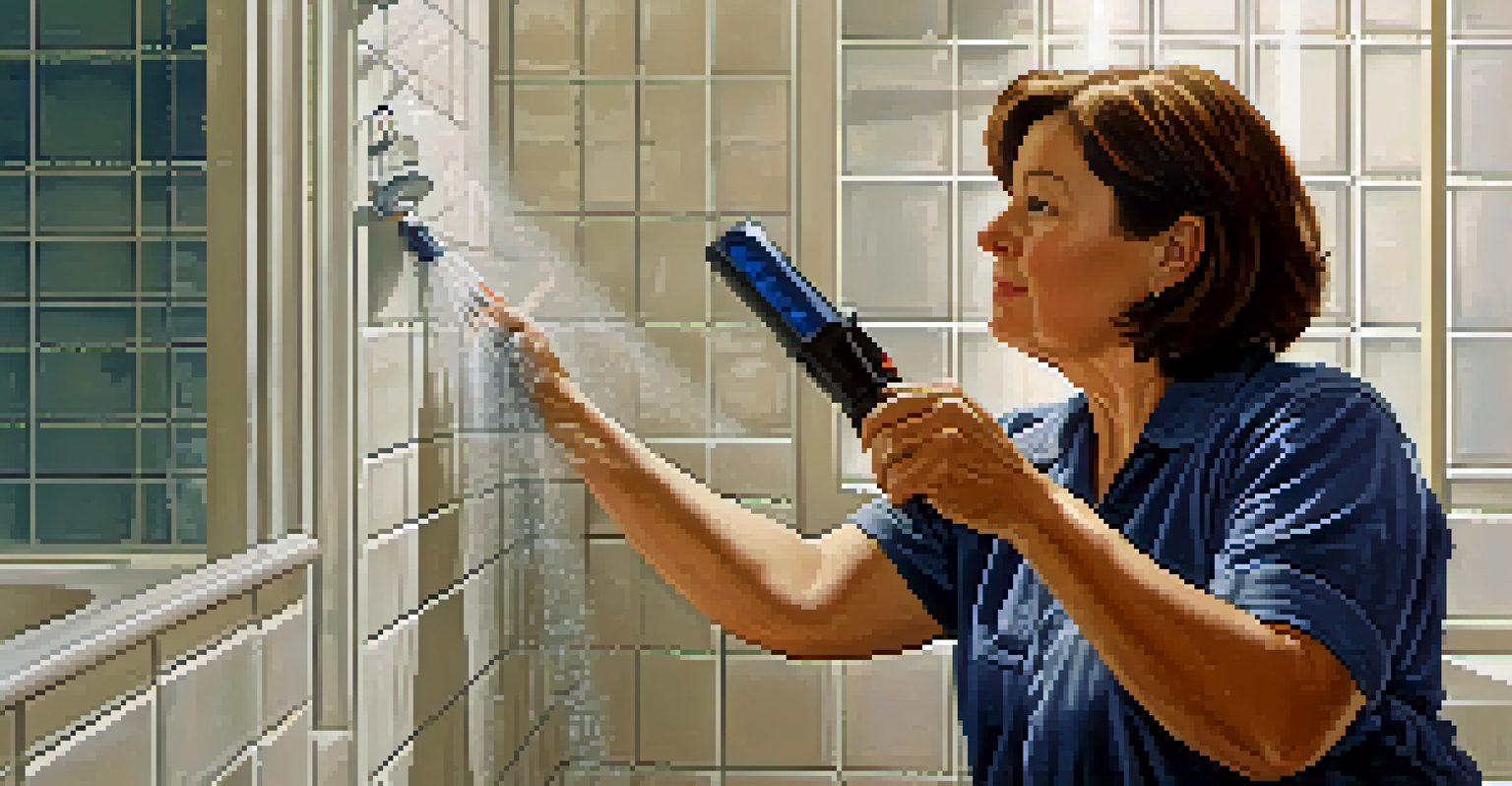Homeowners Insurance and Mold: Coverage Considerations

What is Homeowners Insurance and Its Purpose?
Homeowners insurance is designed to protect your home and belongings from unforeseen events like fire, theft, or natural disasters. It provides financial coverage that can help you repair or replace what you’ve lost. Essentially, think of it as a safety net that keeps your finances secure during tough times.
An ounce of prevention is worth a pound of cure.
In addition to property damage, homeowners insurance typically covers liability issues, meaning if someone gets injured on your property, you're protected. This coverage can be a lifesaver, especially when unexpected accidents happen. It’s important to understand the scope and limits of your policy to ensure you’re adequately protected.
However, not all potential damages are covered under a standard homeowners policy. This is where things can get tricky, especially when it comes to mold. Many homeowners assume their insurance covers mold damage, but this isn’t always the case.
Understanding Mold and Its Common Causes
Mold is a type of fungus that thrives in damp, humid environments. It can appear anywhere in your home where moisture is present, like bathrooms, kitchens, or basements. The presence of mold can lead to health issues and structural damage if left untreated, making it a crucial concern for homeowners.

Common causes of mold growth include leaks from plumbing, poor ventilation, or flooding. Even small spills that aren’t properly cleaned up can create a breeding ground for mold. Understanding these causes can help you take preventive measures to protect your home.
Homeowners Insurance Basics
Homeowners insurance protects against damage to your home and belongings, covering issues like fire, theft, and liability.
Because mold can grow rapidly, it’s essential to address moisture issues as soon as they arise. Regular maintenance and inspections can go a long way in preventing mold growth before it becomes a significant problem.
How Homeowners Insurance Typically Handles Mold Damage
The coverage for mold damage can vary significantly between insurance policies. Generally, standard homeowners insurance may cover mold if it results from a covered peril, like a burst pipe. However, if the mold is due to neglect or lack of maintenance, your claim could be denied.
It's not the load that breaks you down, it's the way you carry it.
For instance, if a roof leak goes unaddressed for months, resulting in mold growth, your insurer may argue that it’s your responsibility to maintain the roof. This is why it's vital to understand the specifics of your policy and what is deemed a covered cause of loss.
Ultimately, it’s essential to read the fine print of your homeowners insurance policy to know where you stand regarding mold coverage. You may need to consider purchasing additional coverage or endorsements if mold is a concern in your area.
Exclusions and Limitations in Mold Coverage
Many homeowners insurance policies include specific exclusions regarding mold damage. For example, some policies may limit coverage to a certain dollar amount or exclude mold damage altogether. This can be quite surprising for homeowners who assume they are fully covered.
It’s essential to be aware of these limitations and exclusions, as they can significantly impact your financial responsibility in the event of a mold problem. If your policy states that mold damage is excluded, you may end up footing the entire bill for cleanup and repairs.
Mold Coverage Limitations
Mold damage is often excluded or limited in homeowners insurance policies, making it crucial to understand your coverage.
To avoid unexpected costs, consider discussing mold exclusions with your insurance agent. They can help you find a policy that offers the best protection against mold-related issues.
Preventive Measures to Avoid Mold Growth
Taking preventive measures is key to avoiding mold growth in your home. Simple actions like using dehumidifiers in damp areas, ensuring proper ventilation, and promptly repairing leaks can make a huge difference. Think of your home as a living organism; it needs the right environment to thrive.
Regularly checking areas prone to moisture, such as bathrooms and kitchens, can help you catch issues before they escalate. This proactive approach not only protects your home but also strengthens your case if a mold-related claim arises.
By maintaining your home and addressing moisture issues quickly, you can significantly reduce the risk of mold growth and any associated insurance claims in the future.
Steps to Take if You Discover Mold in Your Home
If you discover mold in your home, it’s crucial to act quickly. Start by identifying the source of moisture and addressing it to prevent further growth. This could mean fixing a leak, improving ventilation, or even calling a professional to assist.
Once the moisture issue is resolved, you can begin the cleanup process. Small patches of mold can often be removed with soap and water, but larger infestations might require professional remediation. Remember, handling mold improperly can release spores into the air, creating a larger problem.
Preventing Mold Growth
Regular maintenance and prompt repair of moisture issues are essential in preventing mold growth and potential insurance claims.
After cleaning, document the damage and the steps taken to resolve it. This information will be vital if you decide to file an insurance claim, as it provides evidence of your proactive measures in addressing the issue.
Consulting with Your Insurance Agent About Mold Coverage
When it comes to mold coverage, communication with your insurance agent is key. They can provide clarity on what’s covered, any exclusions, and if additional coverage options are available. Don’t hesitate to ask questions; understanding your policy is essential for effective protection.
Consider scheduling a policy review to ensure your coverage meets your current needs. This is especially important if you live in an area where mold is prevalent or if you have had previous mold issues.

Remember, being proactive about your insurance can save you time, money, and stress in the long run. Having a clear understanding of your coverage will empower you to protect your home effectively.